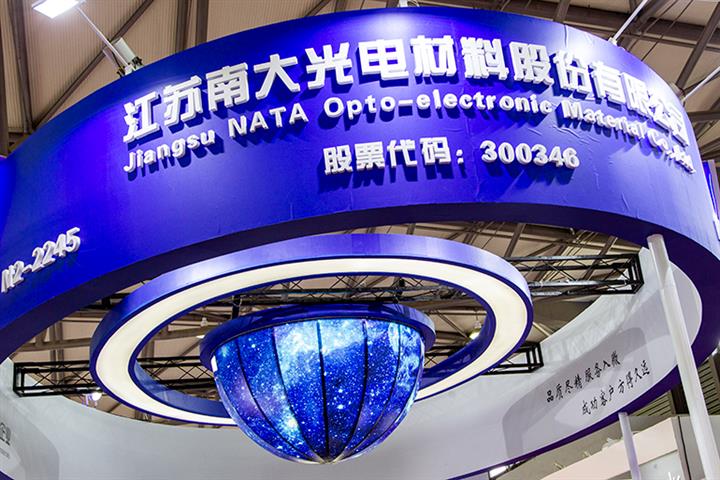 China’s Nata Opto-Electronic Gains as Photoresist Product Passes Tests, Challenges Import Monopoly
China’s Nata Opto-Electronic Gains as Photoresist Product Passes Tests, Challenges Import Monopoly(Yicai Global) Dec. 18 -- Jiangsu Nata Opto-Electronic Material’s shares surged as much as 14 percent this morning on the news that the high-purity electronic material maker’s self-developed photoresist, which is a key raw material used to manufacture high-end chips, has passed customer assessments, paving the way to end the monopoly held by foreign players.
Suzhou, Jiangsu province-based Nata Opto-Electronic’s shares [SHE:300346] were trading up 11.35 percent at CNY36.99 (USD5.65) at 2 p.m. China time. They earlier had reached CNY38.01.
Its ArF photoresist, which is a light-sensitive material used to form a patterned coating on a surface, is the first domestic photoresist product to obtain such a certification, the company said yesterday. Until now, China has relied entirely on imports of the material.
Clients, who were not named, tested the material on 50-nanometer flash memory process technology. The product met the necessary specifications and the yield reached the required standards, it added.
ArF photoresist plays a protective role against corrosion during the lithography of integrated circuits and it needs to be of high quality. The material can be applied in 90-nm, 14-nm and even 7-nm technology nodes. It can be used to make a wide range of semiconductors, including logic chips, artificial intelligence chips, fifth-generation wireless network chips, large-capacity memory chips and cloud computing chips, the firm said.
Nata Opto-Electronic has invested CNY656 million (USD100.2 million) in the research and development of its own photoresist products. It is aiming to produce 25 tons of ArF photoresist by the end of next year from its plant in Ningbo.
Editor: Kim Taylor